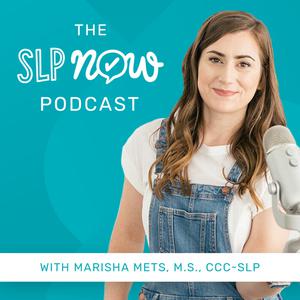
The SLP Now Podcast
SLP Now
How to Work Smarter (Not Harder) as a Speech-Language Pathologist
- 33 minutes 6 secondsCollaborating with Teachers (with Lacee Johnson)
slpnow.com/203
Mentioned in this episode:
5 FREE Therapy Materials
Go to 🔗 slpnow.com/pod 🔗 to download 5 evidence-backed therapy materials for FREE!
28 January 2025, 10:00 am - 9 minutes 43 seconds3 Steps for Easy Progress Reports for SLPs (Replay)
slpnow.com/165
Mentioned in this episode:
5 FREE Therapy Materials
Go to 🔗 slpnow.com/pod 🔗 to download 5 evidence-backed therapy materials for FREE!
21 January 2025, 10:00 am - 45 minutes 30 secondsExecutive Function in Speech Therapy
Show Notes: slpnow.com/201
Mentioned in this episode:
5 FREE Therapy Materials
Go to 🔗 slpnow.com/pod 🔗 to download 5 evidence-backed therapy materials for FREE!
19 November 2024, 10:00 am - 36 minutes 12 secondsWriting Goals for Stuttering
Show Notes: slpnow.com/200
Mentioned in this episode:
5 FREE Therapy Materials
Go to 🔗 slpnow.com/pod 🔗 to download 5 evidence-backed therapy materials for FREE!
12 November 2024, 10:00 am - 14 minutes 23 secondsWriting Goals for Syntax
Show Notes: slpnow.com/199
Mentioned in this episode:
5 FREE Therapy Materials
Go to 🔗 slpnow.com/pod 🔗 to download 5 evidence-backed therapy materials for FREE!
5 November 2024, 10:00 am - 16 minutes 2 secondsWriting Goals for Grammar
Show Notes: slpnow.com/198
Mentioned in this episode:
5 FREE Therapy Materials
Go to 🔗 slpnow.com/pod 🔗 to download 5 evidence-backed therapy materials for FREE!
29 October 2024, 10:00 am - 23 minutes 8 secondsWriting Goals for Vocabulary (Part 2)
Show Notes: slpnow.com/197
Mentioned in this episode:
5 FREE Therapy Materials
Go to 🔗 slpnow.com/pod 🔗 to download 5 evidence-backed therapy materials for FREE!
22 October 2024, 10:00 am - 20 minutes 2 secondsWriting Goals for Vocabulary (Part 1)
Show Notes: slpnow.com/196
Mentioned in this episode:
5 FREE Therapy Materials
Go to 🔗 slpnow.com/pod 🔗 to download 5 evidence-backed therapy materials for FREE!
15 October 2024, 10:00 am - 18 minutes 54 secondsWriting Goals for Narratives
Show Notes: slpnow.com/195
Mentioned in this episode:
5 FREE Therapy Materials
Go to 🔗 slpnow.com/pod 🔗 to download 5 evidence-backed therapy materials for FREE!
8 October 2024, 10:00 am - 36 minutes 20 secondsWriting Goals for Cycles with Amy Graham
Show Notes: slpnow.com/194
Mentioned in this episode:
5 FREE Therapy Materials
Go to 🔗 slpnow.com/pod 🔗 to download 5 evidence-backed therapy materials for FREE!
24 September 2024, 10:00 am - 31 minutes 7 secondsWriting AAC Goals with Rachel Madel
Show Notes: slpnow.com/193
Mentioned in this episode:
5 FREE Therapy Materials
Go to 🔗 slpnow.com/pod 🔗 to download 5 evidence-backed therapy materials for FREE!
17 September 2024, 10:00 am - More Episodes? Get the App
Your feedback is valuable to us. Should you encounter any bugs, glitches, lack of functionality or other problems, please email us on [email protected] or join Moon.FM Telegram Group where you can talk directly to the dev team who are happy to answer any queries.
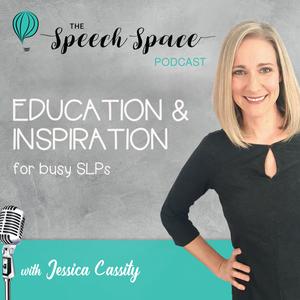 The Speech Space Podcast
The Speech Space Podcast
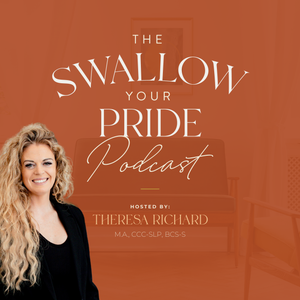 Swallow Your Pride Podcast
Swallow Your Pride Podcast
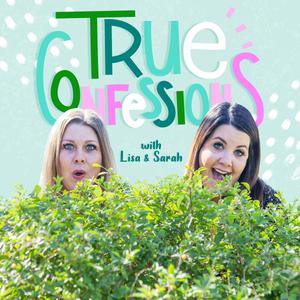 True Confessions with Lisa & Sarah
True Confessions with Lisa & Sarah
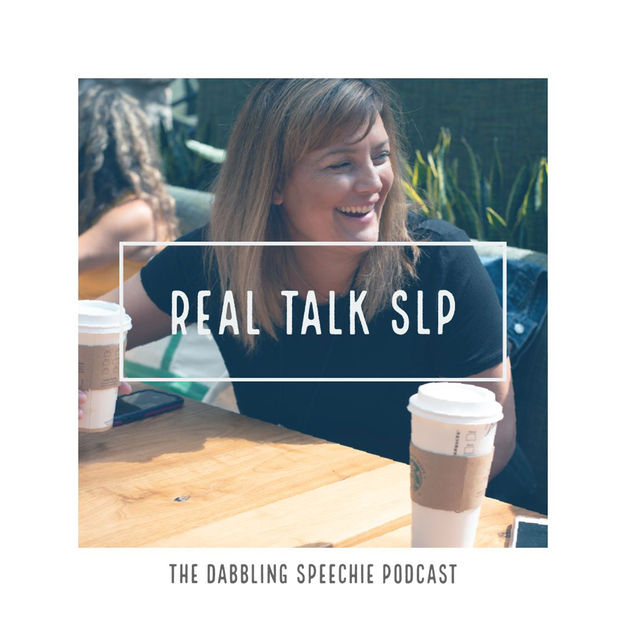 Real Talk SLP
Real Talk SLP
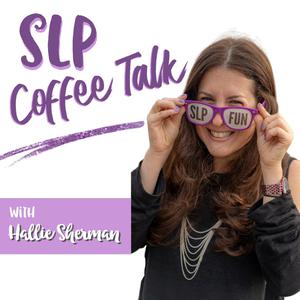 SLP Coffee Talk
SLP Coffee Talk
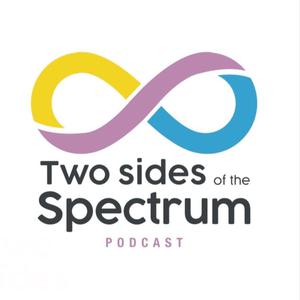 Two Sides of the Spectrum
Two Sides of the Spectrum